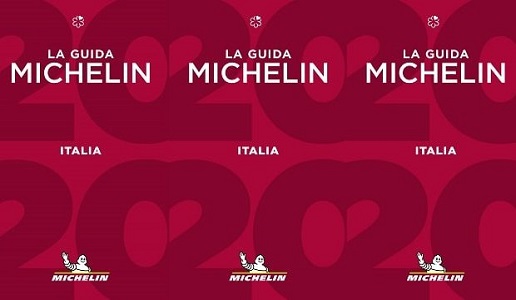The redhead began to slip

The latest edition of the Michelin Guide left us perplexed because it undervalued regional cuisine and was too francocentric.
My title paraphrases that of the wonderful 1980 album by Milva, The Redhead Began to Sing, a collaboration with the great Enzo Jannacci, and where as for the album the redhead was the Italian singer, here we will be talking about the red Michelin Guide that, in my modest opinion, has begun to slip as opposed to sing. Polemics over the guide were already abounding with the famous Savoy restaurateur Marc Veyrat accusing the guide’s critics of taking away a star from his restaurant without even visiting it, or so he says.
Now it is the turn of Gianfranco Vassani, whose restaurant went from two to one star and he was not happy about it. The same thing happened a couple of years ago to Carlo Cracco, who complained but did not make a too much of fuss, while in the past even Paul Bocuse and Gualtiero Marchesi felt they had been victims of evaluations that, in their view, were not justified having been made by incompetent reviewers.
The editor of Guida dell’Espresso, Enzo Vizzari, has rightfully pointed out that the Michelin Guide was created as a travel guide and thus focused on factors that were not directly tied to food and wine, such as hospitality and comfort. However, the concept of the “star chef” has by now become part of the collective imagination as a clear indication of the quality of the food, something few can differ with.
There are two aspects that bother me about the new Michelin Guide, even after the commendable attempts they have made in recent years to modernize it. The first is that it remains francocentric and thus favors the French vision of what a restaurant should be: quite formal and not always, in fact rarely, tied to traditions and territoriality. For Italy and Italian cuisine, this translates into basically undervaluing the importance of regional traditions and local cuisine, even when they are unquestionably top notch.
The second is the perhaps unintentional use of a double standard when evaluating French chefs and restaurants as opposed to those of other countries. For example, I can remember years back when, for reasons dictated more out of respect, three stars continued to be awarded to several famous French restaurants that had gone down hill. These included the last years of Bocuse, Les Crayéres in Reims and its chef Gerard Boyer and the restaurants that hosted the twilight of Roger Vergé. While you could make the argument that the same could be said about Vissani, that he has “slipped”, he was not shown the same courtesy, even though the service and ambiance of his restaurant have improved greatly in recent years. My observations are intended to be circumstantial criticisms, not based on emotional reactions nor any particular dislike of the publication.
In conclusion, I would like to point out that to say that a restaurant that has “maintained one of its stars” rather than saying frankly that it lost a star, perhaps some vain attempt to be diplomatic, for me is a bit hypocritical and I do hope this attitude is not another reflection of French mentality when it comes to wine and food.

 Italiano
Italiano







